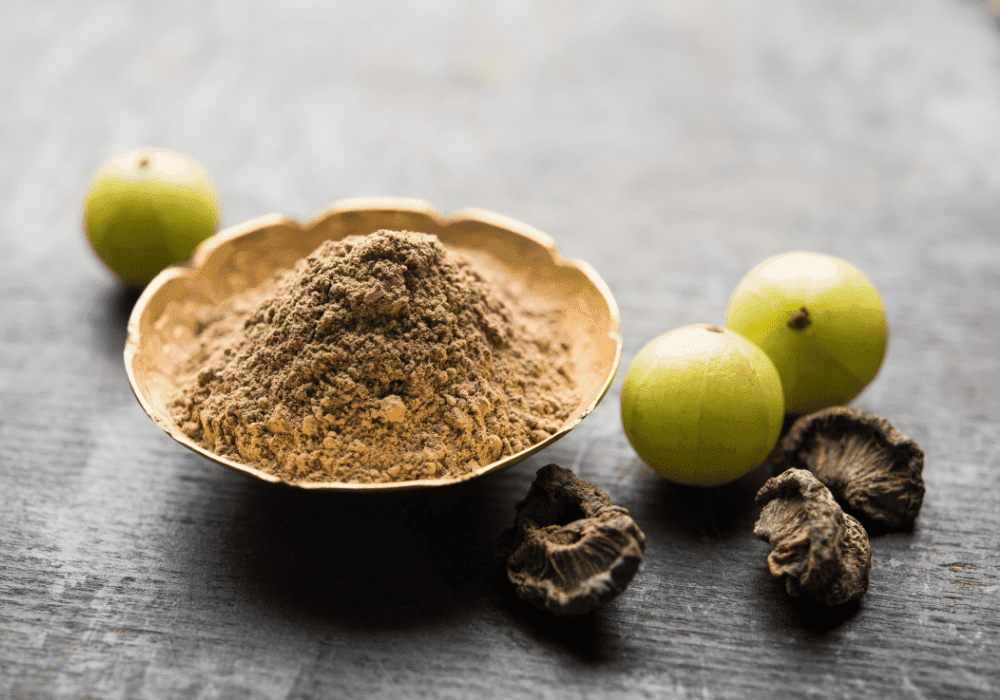Which Plant is called Herbal Indian Doctor – Doctor Plant

Amla, also known as the Indian Gooseberry, holds a special place in the realm of herbal medicine. Renowned for its medicinal properties, this small, sour fruit has been dubbed the “Herbal Indian Doctor” due to its numerous health benefits and historical significance in traditional medicine systems like Ayurveda.
Historical Significance of Amla
Amla, scientifically known as Phyllanthus emblica, is a small to medium-sized deciduous tree native to India. It has been a staple in Ayurvedic medicine for over 2,000 years, and its reputation as a powerful healing herb has spread far and wide. The fruit of the Amla tree is small and green, resembling a gooseberry, hence its common name.
One of the reasons why Amla is considered the “Doctor Plant” is its incredible nutritional profile. It is packed with essential vitamins and minerals, including vitamin C, iron, calcium, and phosphorus. Amla contains 20 times more vitamin C than an orange, making it one of the richest natural sources of this vital nutrient.
Do You Like This – How to Use Neem Leaves for Skin Pimples?
Benefits of Amla
1. Secret of Healthy Skin
The high vitamin C content of Amla is not only beneficial for boosting the immune system but also for promoting healthy skin and hair. Vitamin C is a powerful antioxidant that helps protect the body against free radicals, which can cause premature aging and damage to cells. Regular consumption of Amla can help improve skin elasticity, reduce wrinkles, and promote a youthful complexion.

2. Support Digestion
Amla is also known for its ability to support digestion and improve gastrointestinal health. It contains tannins, which have astringent properties and help in reducing inflammation in the digestive tract. Additionally, Amla has been traditionally used to relieve constipation, indigestion, and acidity.
3. Promotes Weight Loss
Amla can be a valuable addition to a weight loss regimen. The high fiber content in Amla helps promote feelings of fullness and satiety, reducing overeating and aiding in weight management. Additionally, Amla helps boost metabolism, allowing the body to burn calories more efficiently.
4. Improves Eye Health
The abundance of Vitamin C and other antioxidants in Amla makes it beneficial for maintaining good eye health. These nutrients help protect the eyes from oxidative stress and damage caused by free radicals. Regular consumption of Amla can help prevent age-related macular degeneration, cataracts, and other eye disorders.
5. Strengthens Bones and Teeth
Amla is a rich source of calcium and other essential minerals that are vital for maintaining strong bones and teeth. Regular intake of Amla can help prevent conditions like osteoporosis and tooth decay. It also aids in the absorption of calcium from other food sources, ensuring optimal bone health.

6. Alleviates Respiratory Issues
Amla has been used in traditional medicine to alleviate respiratory problems such as asthma and bronchitis. The anti-inflammatory properties of Amla help reduce inflammation in the airways and promote easier breathing. It also acts as a natural expectorant, helping to clear congestion and relieve coughing.
7. Supports Mental Health
Amla contains compounds that have been found to have a positive impact on mental health. It helps reduce stress and anxiety by regulating the production of stress hormones in the body. Amla also improves cognitive function and memory, making it a valuable addition to a healthy brain diet.
Precautions and Considerations
While Amla is generally safe for consumption, it is essential to keep the following points in mind:
1. Allergies
Some individuals may be allergic to Amla. If you experience any allergic reactions, such as itching, swelling, or difficulty breathing, discontinue use and consult a healthcare professional. It is also important to note that Amla belongs to the same family as cashews and pistachios, so individuals with nut allergies should exercise caution when consuming Amla.
2. Interactions with Medications
If you are taking any medications or have underlying health conditions, it is advisable to consult your healthcare provider before incorporating Amla into your routine. Amla may interact with certain medications, such as blood thinners and antidiabetic drugs. It is important to discuss any potential interactions with your healthcare provider to ensure the safe and effective use of Amla alongside your medications.
3. Dosage
While there is no specific recommended dosage for Amla, it is best to start with small amounts and gradually increase as per your tolerance. Excessive consumption of Amla may cause digestive discomfort or diarrhea. It is also worth noting that Amla is a natural laxative, so individuals with gastrointestinal conditions, such as irritable bowel syndrome, should be cautious when incorporating Amla into their diet.
4. Pregnancy and Breastfeeding
If you are pregnant or breastfeeding, it is important to consult your healthcare provider before consuming Amla. While Amla is generally considered safe for pregnant and breastfeeding women, it is always best to err on the side of caution and seek professional advice.
5. Quality and Sourcing
When purchasing Amla products, it is important to choose reputable brands that prioritize quality and sourcing. Look for organic, non-GMO, and sustainably sourced Amla products to ensure you are getting the best possible product without any harmful additives or pesticides.
By keeping these precautions and considerations in mind, you can safely incorporate Amla into your routine and enjoy its numerous health benefits.

Why DO We Eat Amla
One of the most notable benefits of Amla is its ability to boost immunity. With its high vitamin C content, this powerful herb can help strengthen the immune system and protect the body against various infections and diseases. Vitamin C is known for its antioxidant properties, which can neutralize harmful free radicals and reduce oxidative stress in the body. By incorporating Amla into your daily routine, you can give your immune system the support it needs to function optimally.
Conclusion
In conclusion, Amla is a powerhouse of nutrients that offers a wide range of health benefits. From boosting immunity to promoting weight loss, improving digestion to supporting heart health, Amla is a versatile fruit that can enhance overall well-being. Incorporating Amla into your diet, whether in its raw form or as a supplement, can be a simple yet effective way to improve your health and vitality.
FAQs
Is Amla suitable for everyone?
While Amla is generally safe for consumption, individuals with specific health conditions or allergies should consult a healthcare professional before incorporating it into their diet.
How should Amla be consumed to reap its maximum benefits?
Amla can be consumed fresh, in the form of juice, or as a supplement. The optimal dosage may vary depending on individual health goals and requirements.
Are there any known drug interactions with Amla?
Amla may interact with certain medications, such as blood thinners. It is advisable to seek medical advice before consuming Amla if you are taking prescription medications.
Can Amla be grown outside of its native regions?
While Amla thrives in subtropical climates, it can be grown in other regions with similar environmental conditions. However, successful cultivation may require additional care and attention.
Are there any sustainable practices associated with Amla cultivation?
Sustainable cultivation methods, such as organic farming and agroforestry, can help minimize environmental impact and promote biodiversity in Amla production.
